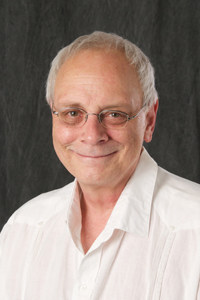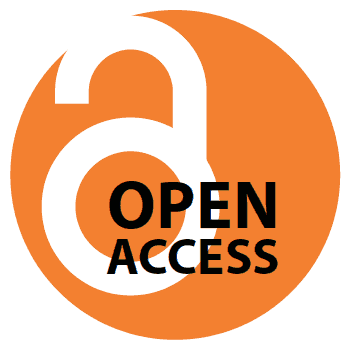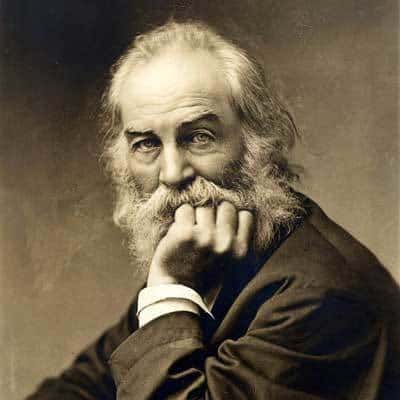During the month of Open Access week (October 23-29, 2017) we will be highlighting a number of guest posts from University of Iowa Faculty and Staff who have personal experience making their work Open Access. We appreciate their contributions. The second guest post is by Carrie Figdor, Associate Professor, Department of Philosophy and Interdisciplinary Graduate Program in Neuroscience, DirectorContinue reading “Guest Post: Opening doors through open access”
Author Archives: Willow Fuchs
Guest Post: Maximize Readership with Open Access
During the month of Open Access week (October 23-29, 2017) we will be highlighting a number of guest posts from University of Iowa Faculty and Staff who have personal experience making their work Open Access. We appreciate their contributions. The first guest post is by Stephan Arndt, PhD, Professor of Psychiatry, Professor of Biostatistics.
Guest Post: Walt Whitman Quarterly Review – an OA Journal
During the month of Open Access week (October 24-30, 2016) we will be highlighting a number of guest posts from University of Iowa Faculty and Staff who have personal experience making work Open Access. We appreciate their contributions. The fourth guest post is by Ed Folsom, the Roy J. Carver Professor of English at TheContinue reading “Guest Post: Walt Whitman Quarterly Review – an OA Journal”
Guest Post: Leonardo Marchini on Open Access
During the month of Open Access week (October 24-30, 2016) we will be highlighting a number of guest posts from University of Iowa Faculty and Staff who have personal experience making their work Open Access. We appreciate their contributions. The third guest post is by Leonardo Marchini, DDS, MSD, PhD, Assistant Professor, Department of Preventative andContinue reading “Guest Post: Leonardo Marchini on Open Access”
Guest Post: Open access journals, a valuable resource for researchers
During the month of Open Access week (October 24-30, 2016) we will be highlighting a number of guest posts from University of Iowa Faculty and Staff who have personal experience making their work Open Access. We appreciate their contributions. The second guest post is by Jose Pablo Leone, MD, Clinical Assistant Professor in the DivisionContinue reading “Guest Post: Open access journals, a valuable resource for researchers”
Guest Post: Open
During the month of Open Access week (October 24-30, 2016) we will be highlighting a number of guest posts from University of Iowa Faculty and Staff who have personal experience making their work Open Access. We appreciate their contributions. The first guest post is by Chioma M. Okeoma, Ph.D, Assistant Professor of Microbiology. See herContinue reading “Guest Post: Open”
Guest Post: Open Access Publication Just Makes Sense
During the month of Open Access week (October 19-25) we will be highlighting a number of guest posts from University of Iowa Faculty and Staff who have personal experience with Open Access. We appreciate their contributions. The seventh, and final post, is by Kelly Cole, Associate Professor and Departmental Executive Officer, College of Liberal ArtsContinue reading “Guest Post: Open Access Publication Just Makes Sense”
Guest Post: Interview – Kembrew McLeod on Open Access
During the month of Open Access week (October 19-25) we will be highlighting a number of guest posts from University of Iowa Faculty and Staff who have personal experience with Open Access. We appreciate their contributions. The sixth guest post is by Kembrew McLeod, Professor of Communication Studies at the University of Iowa and anContinue reading “Guest Post: Interview – Kembrew McLeod on Open Access”
Guest Post: Expectations Exceeded – My Experience With The Open Access Fund
During the month of Open Access week (October 19-25) we will be highlighting a number of guest posts from University of Iowa Faculty and Staff who have personal experience with Open Access. We appreciate their contributions. The fifth guest post is by Matthew Uhlman, Urology Resident, University of Iowa Hospitals and Clinics. Expectations Exceeded –Continue reading “Guest Post: Expectations Exceeded – My Experience With The Open Access Fund”
Guest Post: Walt Whitman Quarterly Review Goes Open Access
During the month of Open Access week (October 19-25) we will be highlighting a number of guest posts from University of Iowa Faculty and Staff who have personal experience with Open Access. We appreciate their contributions. The fourth guest post is by Ed Folsom, the Roy J. Carver Professor of English at The University ofContinue reading “Guest Post: Walt Whitman Quarterly Review Goes Open Access”



